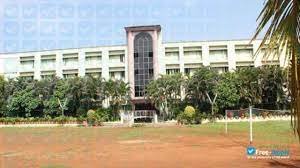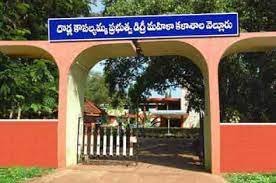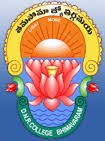Explore the vast potential and promising future in aquaculture, where you can contribute to sustainable food production and conservation through the Bachelor of Science (B.Sc.) in Aquaculture course.
Future Scope & Benefits for Bachelor of Science (B.Sc.) Aquaculture Course
Aquaculture, the practice of cultivating aquatic organisms such as fish, shellfish, and aquatic plants, has gained significant importance as a sustainable solution to meet the world's growing demand for seafood. A Bachelor of Science (B.Sc.) in Aquaculture is an undergraduate program designed to provide students with the knowledge and skills needed to excel in this dynamic and crucial field. In this article, we will explore the future scope and benefits of pursuing a B.Sc. in Aquaculture. A B.Sc. in Aquaculture is typically a three to four-year program that covers a wide range of subjects related to aquatic biology, fish farming, aquaculture management, aquatic health, and sustainability. The curriculum includes both theoretical and practical components, with students gaining hands-on experience in aquaculture systems, water quality management, and species-specific husbandry practices. Graduates are equipped to work in various aspects of aquaculture, from farm management to research and development.
B.Sc. in Aquaculture Future Scope
The field of aquaculture offers a multitude of career opportunities, and B.Sc. in Aquaculture graduates can find themselves in demand in various sectors of the aquaculture industry and beyond. Here are key areas where B.Sc. in Aquaculture graduates can make significant contributions:
-
Aquaculture Farm Management: Graduates can work as farm managers or supervisors in aquaculture facilities, overseeing the day-to-day operations of fish farms, hatcheries, and aquatic plant cultivation.
-
Fish Health and Disease Management: Opportunities exist in fish health management, where professionals monitor the health of aquatic species, diagnose diseases, and implement disease prevention and treatment strategies.
-
Aquaculture Research: Graduates may choose to pursue careers in research and development, conducting studies to improve aquaculture practices, enhance species growth, and develop sustainable production methods.
-
Aquatic Feed Production: With the increasing demand for high-quality aquaculture feeds, some graduates can work in feed production companies, developing and formulating aquatic feeds.
-
Sustainability and Conservation: Professionals in this field can focus on sustainability and conservation efforts, working to minimize the environmental impact of aquaculture and protect aquatic ecosystems.
-
Aquaculture Extension Services: Graduates may work in government agencies or non-profit organizations, providing extension services to aquaculture farmers, offering guidance on best practices, and promoting sustainability.
-
Aquatic Product Processing: Opportunities exist in seafood processing and value addition, where professionals are involved in processing and packaging aquaculture products for the market.
-
Aquatic Consulting: Graduates can become aquaculture consultants, offering expertise to individuals and organizations seeking to start or optimize aquaculture operations.
-
Aquatic Education: Some individuals choose to become educators, teaching aquaculture-related courses at schools, colleges, and universities, contributing to the development of future aquaculture professionals.
Benefits of Pursuing a B.Sc. in Aquaculture
Pursuing a B.Sc. in Aquaculture offers numerous benefits, making it an attractive choice for individuals interested in the sustainable production of seafood and aquatic organisms. Here are some of the key advantages:
-
Addressing Global Food Security: Aquaculture plays a vital role in addressing global food security by providing a sustainable source of protein and other nutrients, contributing to the world's food supply.
-
Sustainable Practice: Graduates have the opportunity to promote sustainable aquaculture practices, reducing pressure on wild fish populations and promoting eco-friendly production methods.
-
Diverse Career Opportunities: The degree opens doors to diverse career options in aquaculture, research, management, and conservation, allowing individuals to pursue their specific interests.
-
Global Relevance: Aquaculture skills are globally relevant, enabling graduates to work in various countries and regions where aquaculture is a critical industry.
-
Continuous Learning: The field of aquaculture is continually evolving, offering opportunities for lifelong learning, specialization, and professional development.
-
Positive Environmental Impact: Professionals in aquaculture can make a positive impact on the environment by promoting responsible and sustainable production practices.
-
Innovation and Technology: The aquaculture industry is embracing innovation and technology, providing opportunities for professionals to work with cutting-edge equipment and techniques.
 3 Years
3 Years
 Under Graduate
Under Graduate
 Science
Science
 Full Time
Full Time







 back
back

